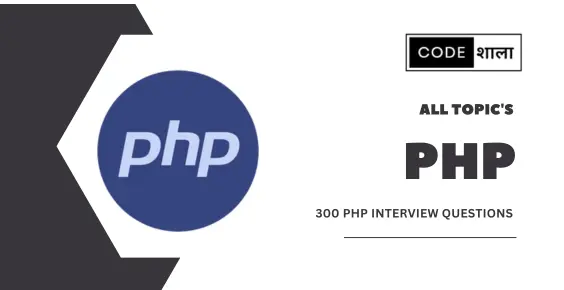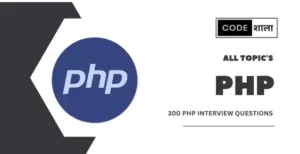As web development continues to evolve, PHP frameworks play a crucial role in streamlining the development process and empowering developers to build robust and scalable web applications efficiently. Among the various PHP frameworks available, Laravel, Symfony, and CodeIgniter have gained immense popularity due to their unique features and performance. In this comprehensive guide, we will delve into the distinct characteristics of these top PHP frameworks, exploring their strengths, use cases, and the benefits they offer to developers and businesses alike.
Describe the Features of Popular PHP Frameworks like Laravel, Symfony, CodeIgniter, etc.
Laravel: The Expressive and Elegant PHP Framework
Laravel is a widely acclaimed PHP framework known for its elegant syntax and expressive design. It provides developers with a powerful toolkit, making it a preferred choice for building modern web applications. Some of its key features include:
- Artisan Command-Line Tool: Laravel’s command-line tool, Artisan, automates repetitive tasks and generates boilerplate code, streamlining development and enhancing productivity.
- Eloquent ORM: Laravel’s Eloquent ORM simplifies database interactions, allowing developers to work with databases using an intuitive and expressive syntax.
- Blade Templating Engine: The Blade templating engine offers easy-to-use and efficient templates for views, improving code organization and maintainability.
- Middleware Support: Laravel’s middleware feature enables developers to handle HTTP requests and responses effectively, implementing filters and authentication easily.
- Routing System: Laravel’s flexible routing system facilitates mapping URLs to controller actions, enabling a clean and organized code structure.
- Authentication and Authorization: Laravel provides a robust authentication system, making it simple to implement user authentication and access control in applications.
- Caching System: The built-in caching system helps optimize application performance by storing frequently accessed data in memory.
Symfony: The High-Performance PHP Framework
Symfony is a full-stack PHP framework designed to meet the requirements of enterprise-level web applications. It emphasizes performance, modularity, and reusability, making it an ideal choice for large-scale projects. Some of its prominent features include:
- Bundles Architecture: Symfony’s modular architecture is based on bundles, allowing developers to add or remove features seamlessly, promoting code reusability.
- Dependency Injection: Symfony’s powerful dependency injection container manages class dependencies, promoting cleaner code and facilitating unit testing.
- Event Dispatcher: The event dispatcher component in Symfony enables the implementation of event-driven architectures, enhancing code flexibility.
- Doctrine ORM: Symfony integrates seamlessly with Doctrine, a popular ORM, providing developers with robust database management capabilities.
- Console Component: The Symfony Console Component enables developers to build feature-rich command-line applications efficiently.
- Twig Templating Engine: Symfony employs Twig as its default templating engine, offering a secure and flexible way to create templates.
- Security Component: Symfony’s security component simplifies user authentication, authorization, and access control in applications.
CodeIgniter: The Lightweight PHP Framework
CodeIgniter is a lightweight and easy-to-use PHP framework known for its simplicity and performance. It is a suitable choice for small to medium-sized projects, where simplicity and rapid development are critical. Key features of CodeIgniter include:
- Small Footprint: CodeIgniter’s minimal footprint ensures faster loading times and better performance, making it ideal for shared hosting environments.
- Model-View-Controller (MVC) Architecture: CodeIgniter follows the MVC pattern, promoting the separation of concerns and code organization.
- Form Validation: CodeIgniter provides a built-in form validation library, making it effortless to validate user input and handle form submissions.
- Query Builder: The query builder class simplifies database queries, allowing developers to interact with databases without writing SQL queries directly.
- Error Handling: CodeIgniter offers a comprehensive error-handling mechanism, providing developers with useful debugging information.
- Security Features: CodeIgniter includes various security features like XSS filtering and CSRF protection, safeguarding applications against common security threats.
Symfony or Laravel: Which Framework Should You Choose?
While both Symfony and Laravel are powerful PHP frameworks, choosing the right one depends on your project’s specific needs and goals. Symfony’s robustness and modularity make it an excellent choice for large-scale applications, whereas Laravel’s expressive syntax and developer-friendly environment are better suited for small to medium-sized projects. Consider the complexity and scalability requirements of your project before making a decision.
Frequently Asked Questions (FAQs)
- Q: Which PHP framework is best for beginners?
- Laravel is an excellent choice for beginners due to its user-friendly syntax and comprehensive documentation. It provides a gentle learning curve for developers new to PHP frameworks.
- Q: What are the advantages of using Symfony?
- Symfony offers a highly customizable and modular architecture, making it suitable for complex projects. Its extensive libraries and components enable rapid development and robust performance.
- Q: Is CodeIgniter suitable for large-scale applications?
- While CodeIgniter can handle medium-sized applications efficiently, it may not be the best choice for large-scale projects. Symfony or Laravel are more suitable options for handling complex and high-traffic applications.
- Q: How frequently are Laravel and Symfony updated?
- Both Laravel and Symfony have active and dedicated development teams, ensuring regular updates and bug fixes. Updates are released periodically to enhance security and add new features.
- Q: Are these frameworks suitable for RESTful API development?
- Yes, both Laravel and Symfony are well-suited for RESTful API development. They offer built-in tools and features that simplify API development, making it easier to build robust and scalable APIs.
- Q: Can I use multiple frameworks within the same project?
- While it’s technically possible to use multiple frameworks in the same project, it is not recommended. It can lead to code complexity, maintenance challenges, and potential conflicts between frameworks.
Conclusion
In conclusion, Laravel, Symfony, and CodeIgniter are powerful PHP frameworks that cater to different project requirements and development preferences. Laravel’s expressive syntax and feature-rich ecosystem make it an ideal choice for small to medium-sized applications. Symfony’s modularity and performance-oriented approach suit larger, complex projects, while CodeIgniter’s lightweight and straightforward design is suitable for rapid development and simplicity. By understanding the unique features and strengths of each framework, you can make an informed decision and choose the one that best aligns with your web development needs.







